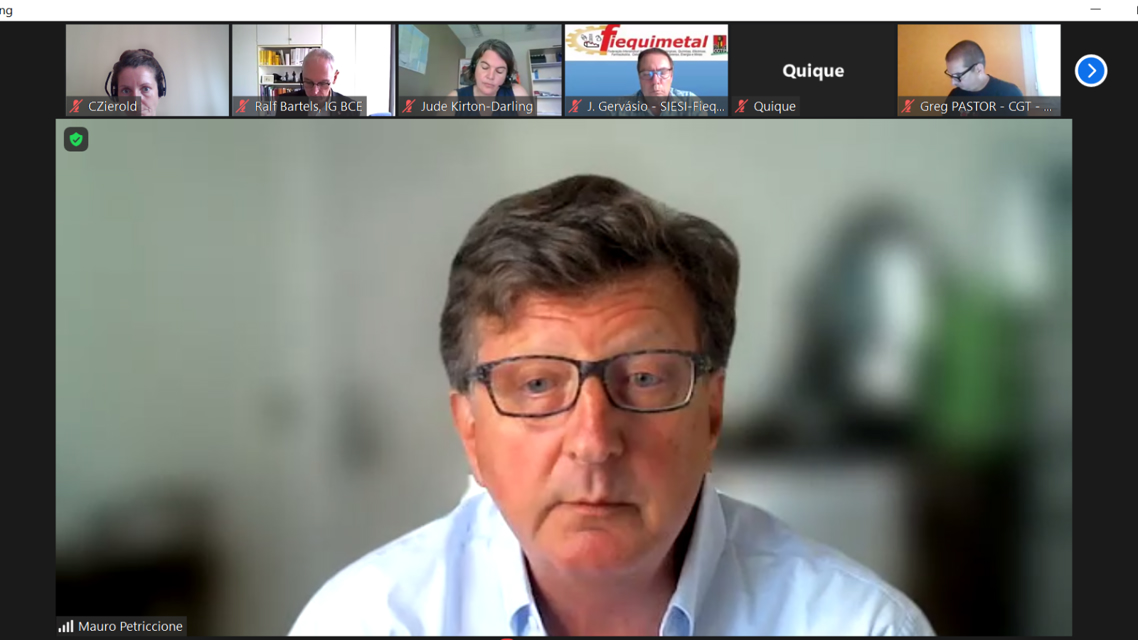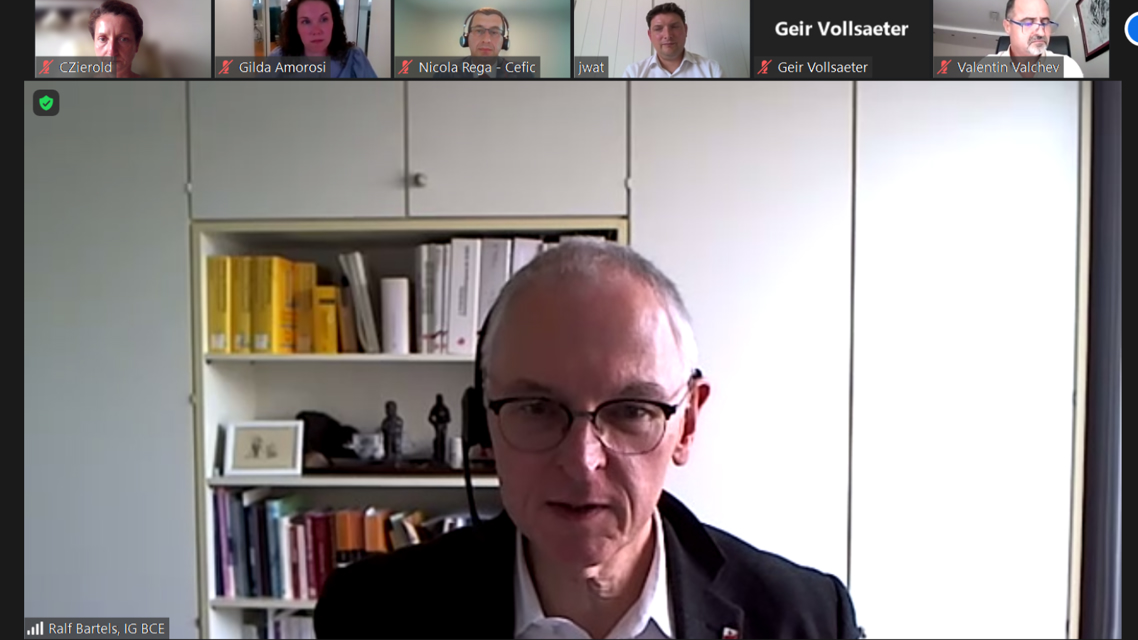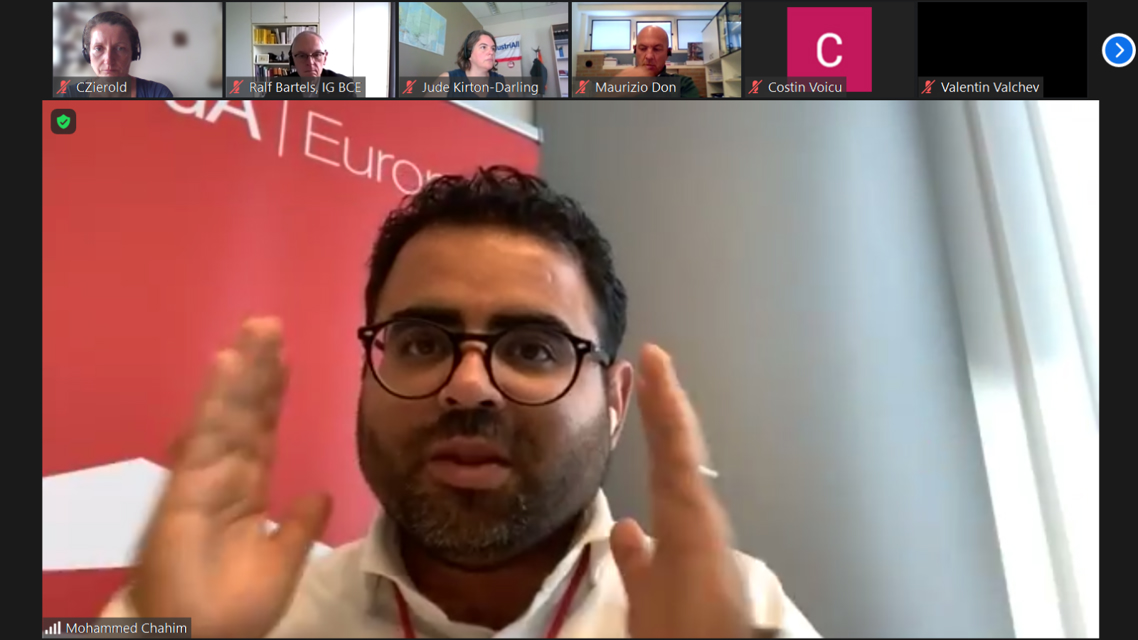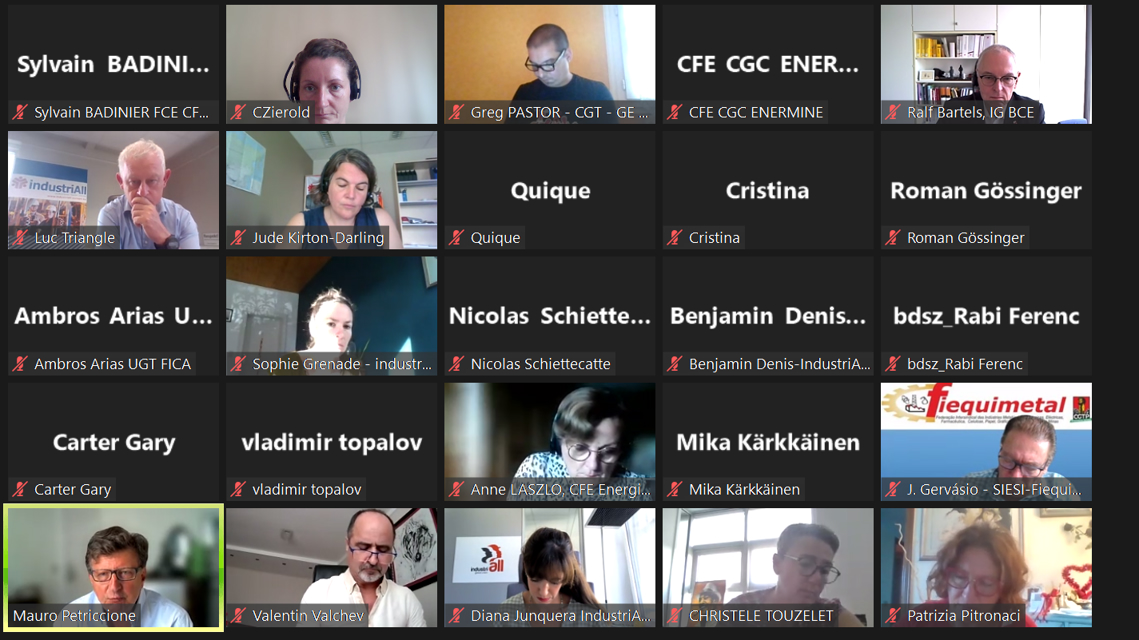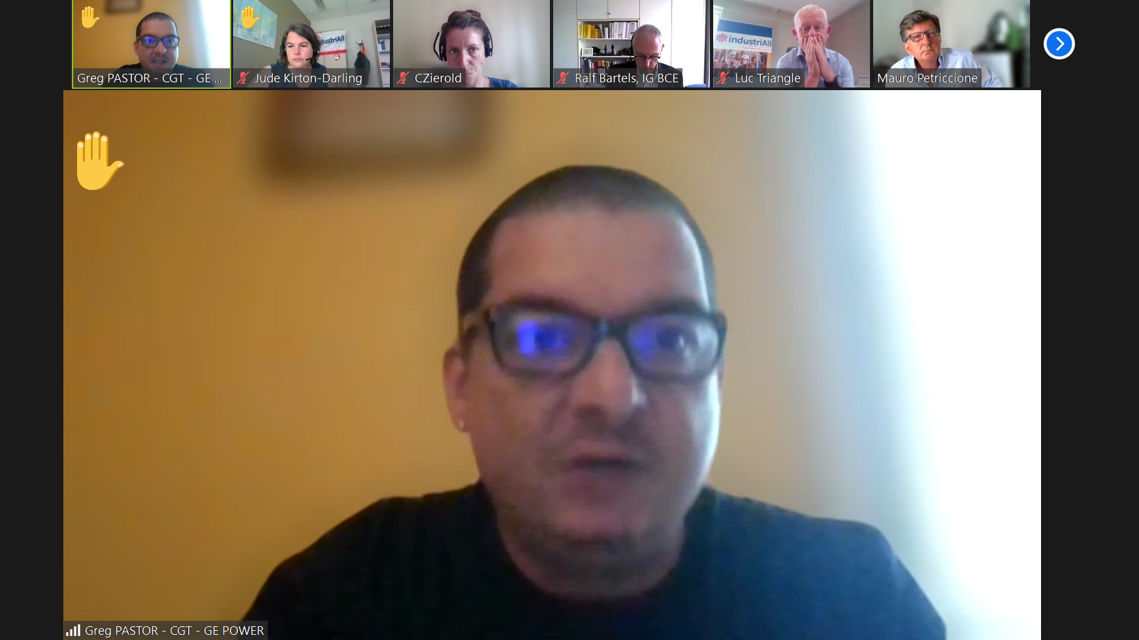The Fit for 55 package will obviously trigger a rapid and massive intensification of emission reductions across our sectors, but we don’t see the same level of intensification for the social side of climate action. From this perspective, the package is not yet fit for industrial workers.
Following the publication of the EU climate and energy package, known as ‘Fit for 55’, on 14 July 2021, industriAll Europe’s Energy Network met today to discuss the package with Mauro Petriccione (Director-General of DG CLIMA, the Directorate General for Climate Action), Mohammed Chahim MEP (Vice-President of the Socialists and Democrats in the European Parliament) and representatives from sectoral social partners – Eurelectric, EuroGas and CEFIC.
While different views were expressed on the route to achieve climate neutrality by 2050, decarbonise energy production, and guarantee the energy supply needed at affordable prices for industry and households in Europe, there was consensus that much more is needed to ensure that the transition leaves no region or worker behind.
Asked directly, if the package was adequate to guarantee a Just Transition, Mauro Petriccione responded “‘not yet”, but added that many of the pieces of the jigsaw were on the table. He told the meeting to consider the package and its individual legislative files as a whole. The package was far from perfect, but it was a genuine attempt by the Commission to promote ambitious climate action while pursuing a decarbonised, sustainable and prosperous European economy. Mr Petriccione then invited the trade unions to keep up the dialogue in order to make Just Transition a reality.
Speaking in response to the Director-General’s introduction of the package, industriAll Europe’s General Secretary, Luc Triangle, was clear:
“As trade unions, we also know that Just Transition is the only recipe that can secure people’s support of emission reduction policies. The Fit for 55 package is made of proposals that will dramatically accelerate the pace of decarbonisation in Europe, especially in our sectors that will be and are already at the frontline of climate action.
“While industriAll Europe supports the 55% target, as the science is clear, we also have to deal with the direct impacts on the workforce. All energy intensive industries (steel and basic metals, chemical, cement and basic materials), as well as energy industries, will be directly impacted by the revision of the EU ETS. The automotive industry will have to go through a rapid and massive transformation driven by electrification, with a possible phase out of ICE technologies by 2035. The Fit for 55 package will obviously trigger a rapid and massive intensification of emission reductions across our sectors, but we don’t see the same level of intensification for the social side of climate action. From this perspective, the package is not yet fit for industrial workers”.
Good practice examples of negotiated transition plans at company (SSE, ENEL) and sectoral level (Spanish Just Transition agreements) were explored – feeding into industriAll Europe’s Decarbonisation and Just Transition projects. All the speakers at today’s meeting however reiterated the historic scale of the changes underway and the implications in terms of a broader policy and resource framework. It was also alarming to hear that worker participation is not something that is taken for granted in all countries across Europe and that workers in some countries are being excluded from the policies aimed at changing their own workplaces.
Luc Triangle emphasised “We are missing a legal framework for the anticipation of change. Trade Unions and the workers they represent must have their say in discussions where their fate is at stake. The market alone will not steer such a rapid and massive transformation in a socially fair way. We need a legal framework at sectoral, national and company level that enables social partners to negotiate on how they will cope with structural change. Here again, despite some nice words and a few interesting but limited proposals, we are missing a specific proposal to better manage and anticipate structural change. The weakening of labour codes and collective bargaining that we have been observing in many countries over recent years is in alarming contradiction to any Just Transition efforts!”
Ralf Bartels, Chair of industriAll Europe’s Energy Network concluded that today’s Energy Network meeting and workshop have emphasised what the 55% reduction of greenhouse gas emissions by 2030 means for both industry and workers: “It is a marathon distance, requiring the speed of a sprint. It is not only about companies and state budgets being made fit for 55, it is about the workers, industrial jobs, and a Just Transition.”
Contact: Andrea Husen-Bradley (press and communication), Corinna Zierold (senior policy adviser)

